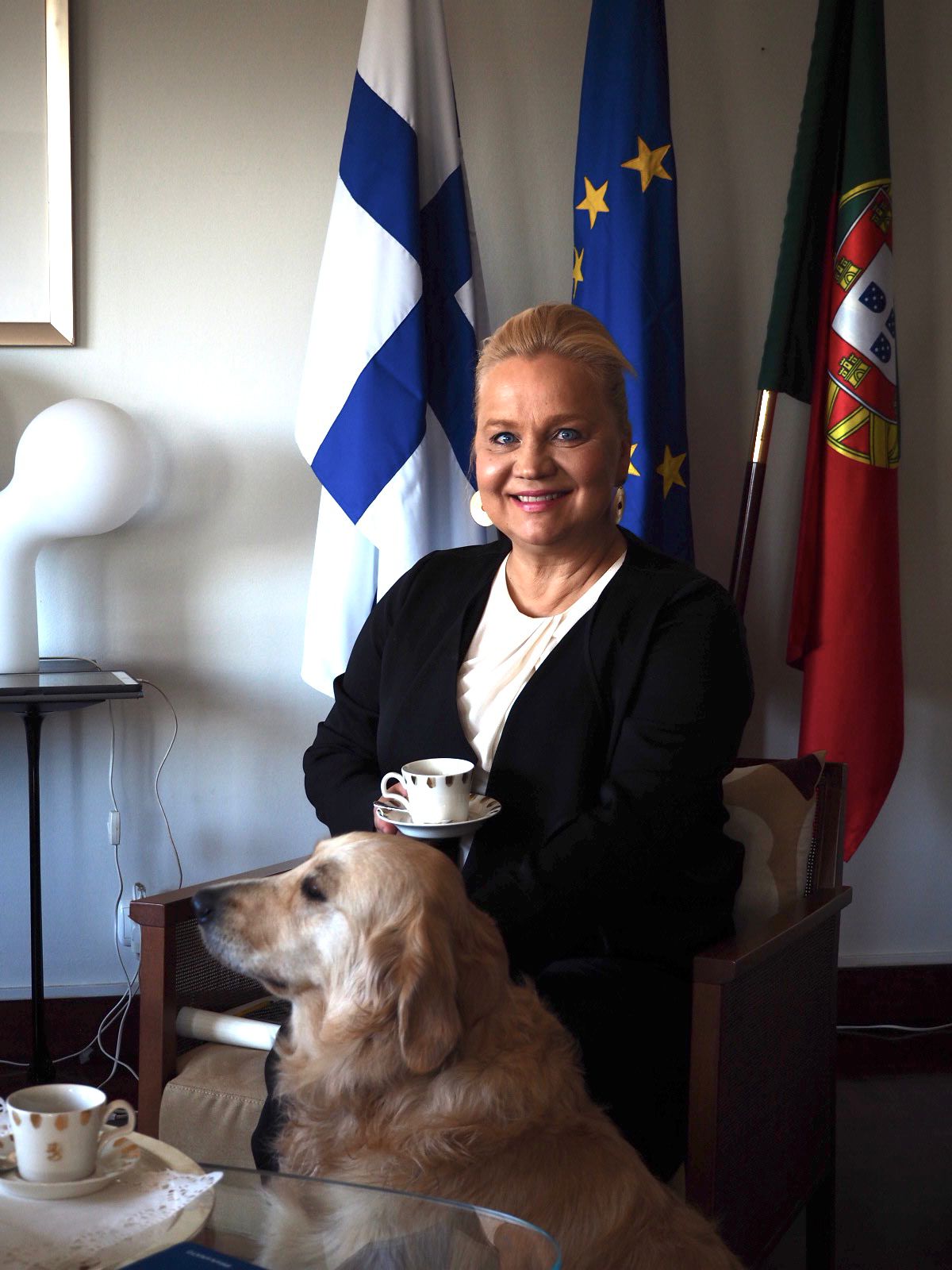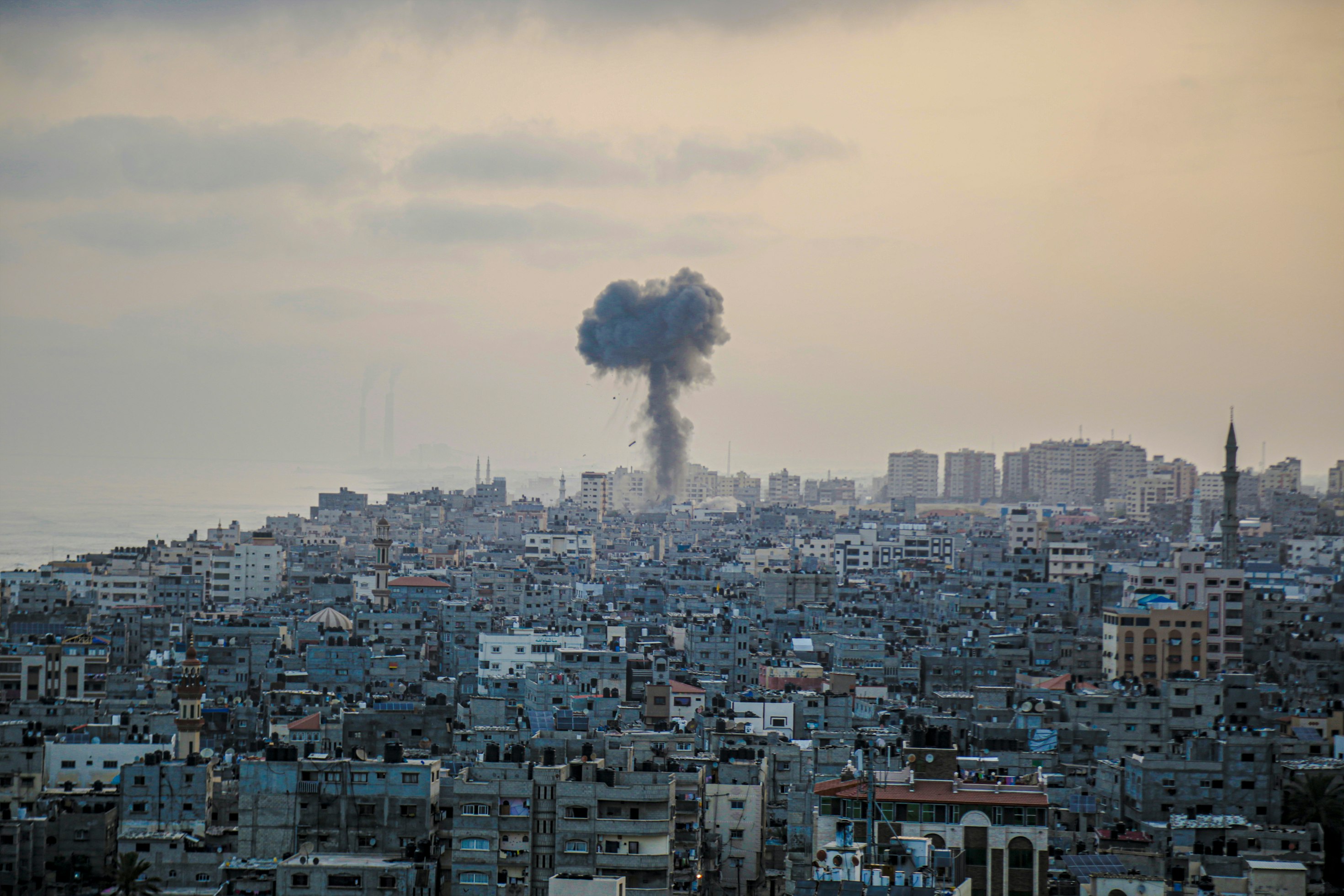DEMOCRACY UNSCRIPTED: Interview with H.E. Finnish Ambassador Satu Suikkari-Kleven
Ambassador Satu Suikkari-Kleven is a Finnish diplomat dually accredited to Portugal and the Republic of Cabo Verde since September 2020. She has formerly served as Ambassador of Finland to Thailand, Cambodia and Myanmar, and further served in Finnish diplomatic missions, both in the Finnish Embassy in Oslo, Norway, and in the Finnish UN Mission in New York, and was seconded to the office of the Commissioner for Human Rights of the Council of Europe in Strasbourg, France. At the Ministry of Foreign Affairs, she has served as director for the International Law unit within its legal services, in the Ministry’s Political Department as the head of its UN Security Council team and at the Human Rights Policy Unit, among others. Before joining the Finnish diplomatic service, she worked as a Junior Professional Officer for UNHCR in Geneva, with short term missions to Pakistan and Afghanistan.
Today, she joined us to discuss the recent Women in Diplomacy Conference in Lisbon, the consolidation of Finland’s accession to NATO, as well as her personal advice for students seeking a diplomatic career.
Women in Diplomacy Conference
What do you think was the most important takeaway from the “Women in Diplomacy” conference, and how did it fill in a gap in regards to the unique role of women, youth and minorities in the political field?
I found the conference very enjoyable. What I really liked was the setting which allowed for students to take on the main role, bringing their own views into discussion through their questions. When it comes to the speakers, their experiences as people from different countries, regions and organizations was very relevant. Diversity of views is very important when addressing these types of topics, so that you can challenge each other and bring in new ways of thinking. The participation of students from Afghanistan and Syria was very relevant to the forum. Whenever we discuss policies or political and strategic issues, we have to root it in reality, and no one can do this apart from the people who have personally lived through conflict or have a close connection to it. It is the principle of “nothing about us without us”.
Do you have a favorite female hero? If yes, who? And why?
I have many female heroes. In my personal life, I see my mother as my hero, because she has devoted much of her life towards making sure that my family and I had a good life. And this happened in the sixties, seventies and eighties, when the role of women was not what it is today, meaning the issues she had to face were much harsher than the ones I confronted as a woman in my career. On a more global and professional scale, there are many women I see as heroes. It’s difficult to choose only one female hero, but the courageous women who, at great personal risk, defend human rights and minorities in their countries, such as the women who do that on a daily basis in Afghanistan, are true heroes and a great source of inspiration.
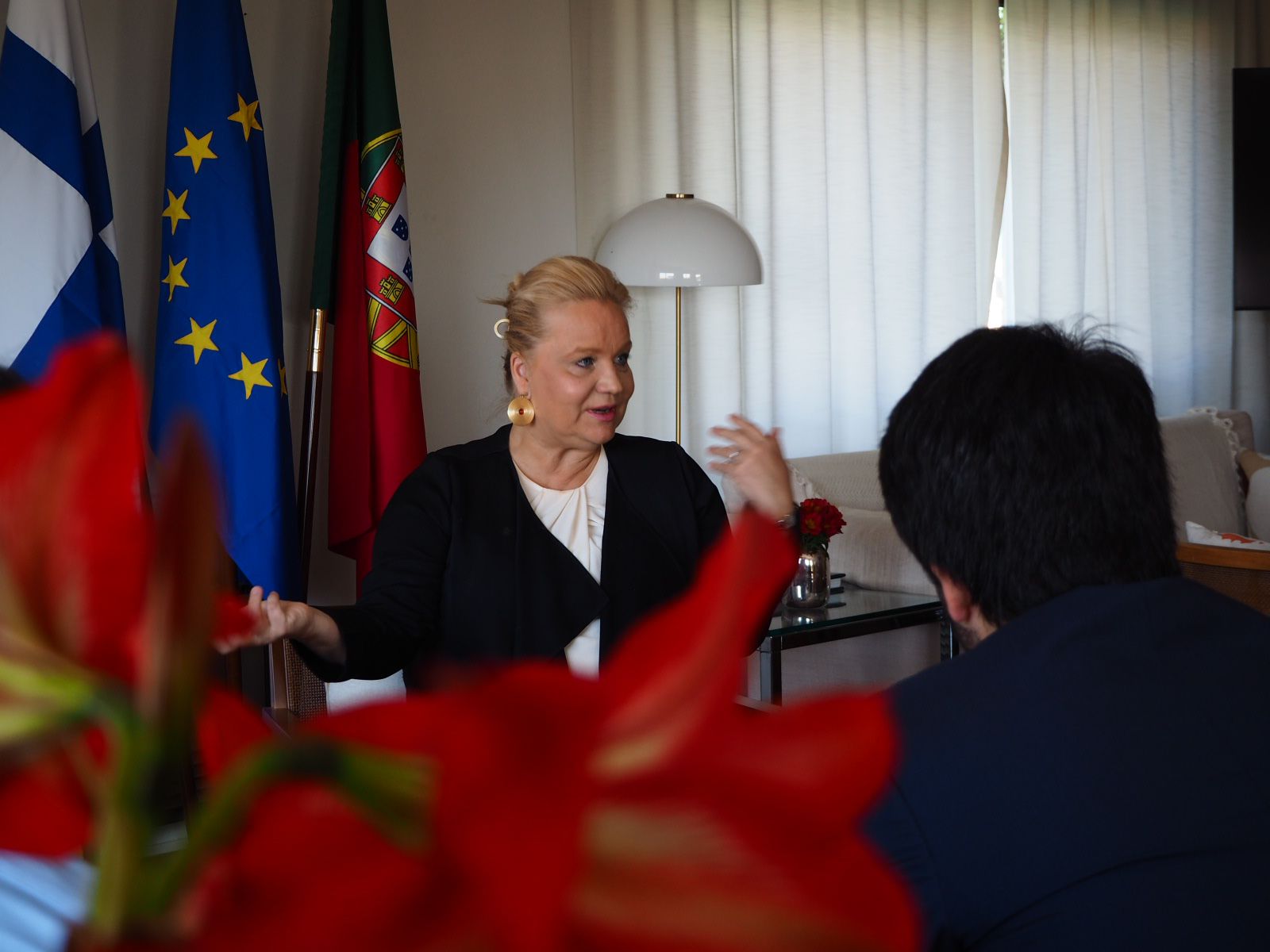
Finland joining NATO — Thoughts, Implications, Conclusions
The Republic of Finland has taken the historical decision to abandon its neutrality position. What implications are expected from this decision? What would Finland’s new role in the international order be?
Our main reason for joining NATO was the understanding that our membership would increase security for Finland and its surrounding area. However, this decision led to a very important change when it comes to our defense policy. The policy of neutrality we held during the Cold War was abandoned in the early nineties and we joined the European Union, but we continued to be militarily non-allied. Thus, the big change is that we are now a militarily allied country.
Our long-standing foreign policy line will remain the same. We follow a human rights based foreign policy, centered around the principles of multilateralism, the defense of a rules based international order, and the promotion of democracy and rule of law around the world. Now, we will have a new forum to bring up these issues also.
Finland’s goal is for Sweden to also become a NATO member as soon as possible. With Finland and Sweden as NATO members, the threshold for using military force in the Baltic Sea region will rise, which will enhance the stability of the region in the long term.
With Finland joining NATO, to what extent could we envision an escalation in the Russo-Ukrainian conflict?
Russia, of course, has been trying to influence countries’ decisions over their own place in the international scene, but to maintain order in the international space and safeguard the principles of the UN Charter, namely sovereignty, it is important that we stand against that kind of pressure. It was the Russian invasion which triggered Finland’s decision to join, because we saw that our security environment had profoundly changed, and we couldn’t rely on the previously held pillars of security anymore. We see us joining as a measure to increase security, not only in Finland, but also in a wider context.
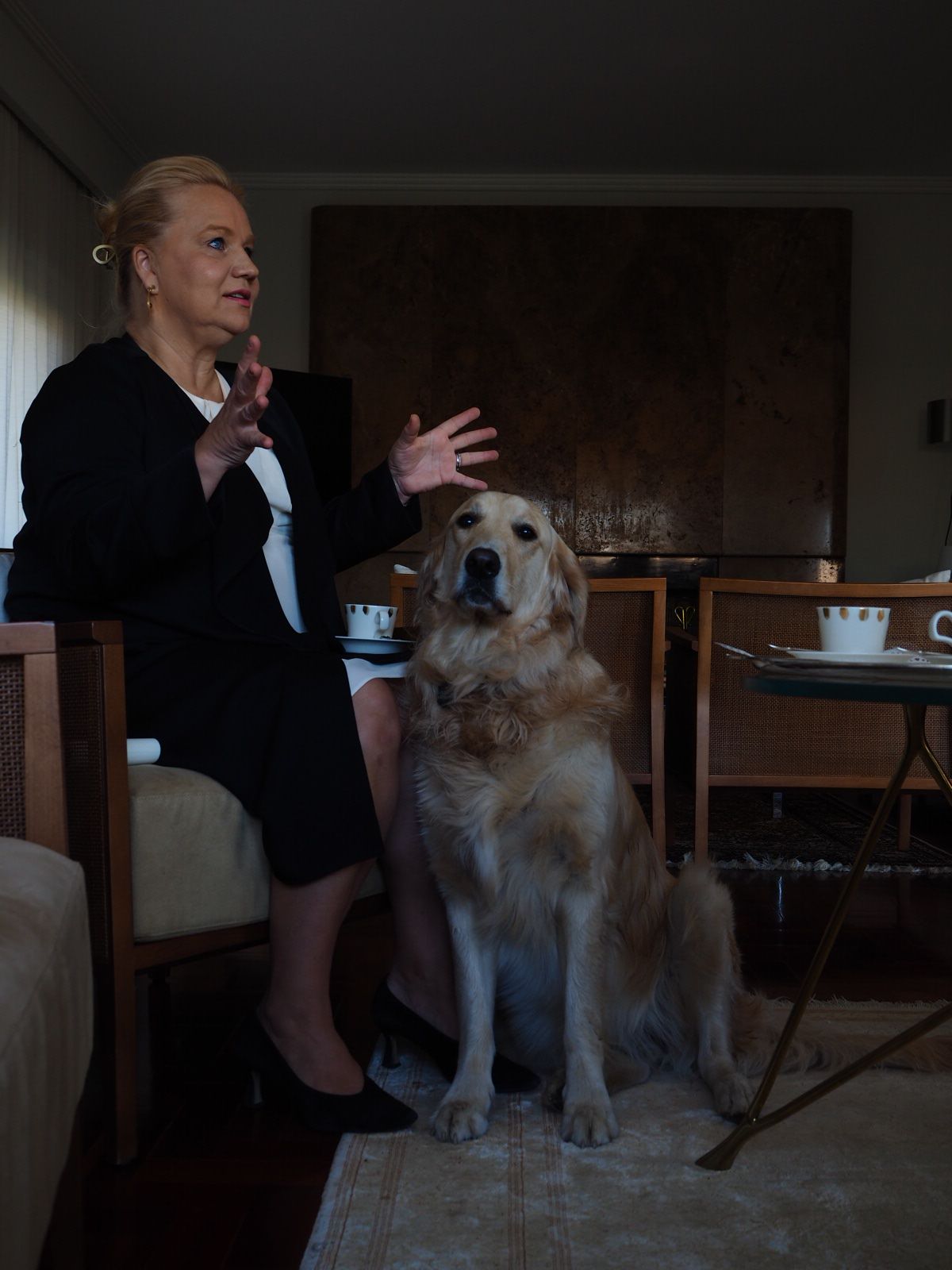
What do you consider to be the main strengths/benefits/advantages that Finland brings to the alliance?
Well, we have a very strong national defense whose investments were never downgraded, a very tangible issue that was already apparent in our very close partnership with NATO since the mid-nineties. Finland is a security provider and committed to the 360 degree approach to security. There is also a very strong willingness to defend one’s country in Finland, which has only further increased since Russia’s full-scale invasion into Ukraine. Finns were queuing up to volunteer for defense courses in order to upgrade their skills in crises prevention and management. We will also bring our expertise in crises management and new technologies, among others. Our previously mentioned human rights based approach to foreign and security policy and its respective principles are also important priorities that we bring to the table.

Advice for students seeking diplomacy career
What would you say are the best steps to take for someone that graduates in PoliSci and wants to be a diplomat?
The most important things are having your eyes and ears open to world affairs, and work to develop practical experience. You need to have a general interest for both world and national affairs, because as a diplomat you are representing your country’s interests. This can be cultivated, for instance, by reading and writing for newspapers, which allows you to get to know people and experiences from a variety of fields, and develop a deeper understanding across different subjects.
In this area, the willingness to adapt is very important. As a diplomat, you change your country every four years, meaning constant adjustments to different environments, cultures and living conditions. One good way to gain experience here is through exchange programmes and traineeships at international organizations, non-governmental organizations or embassies.
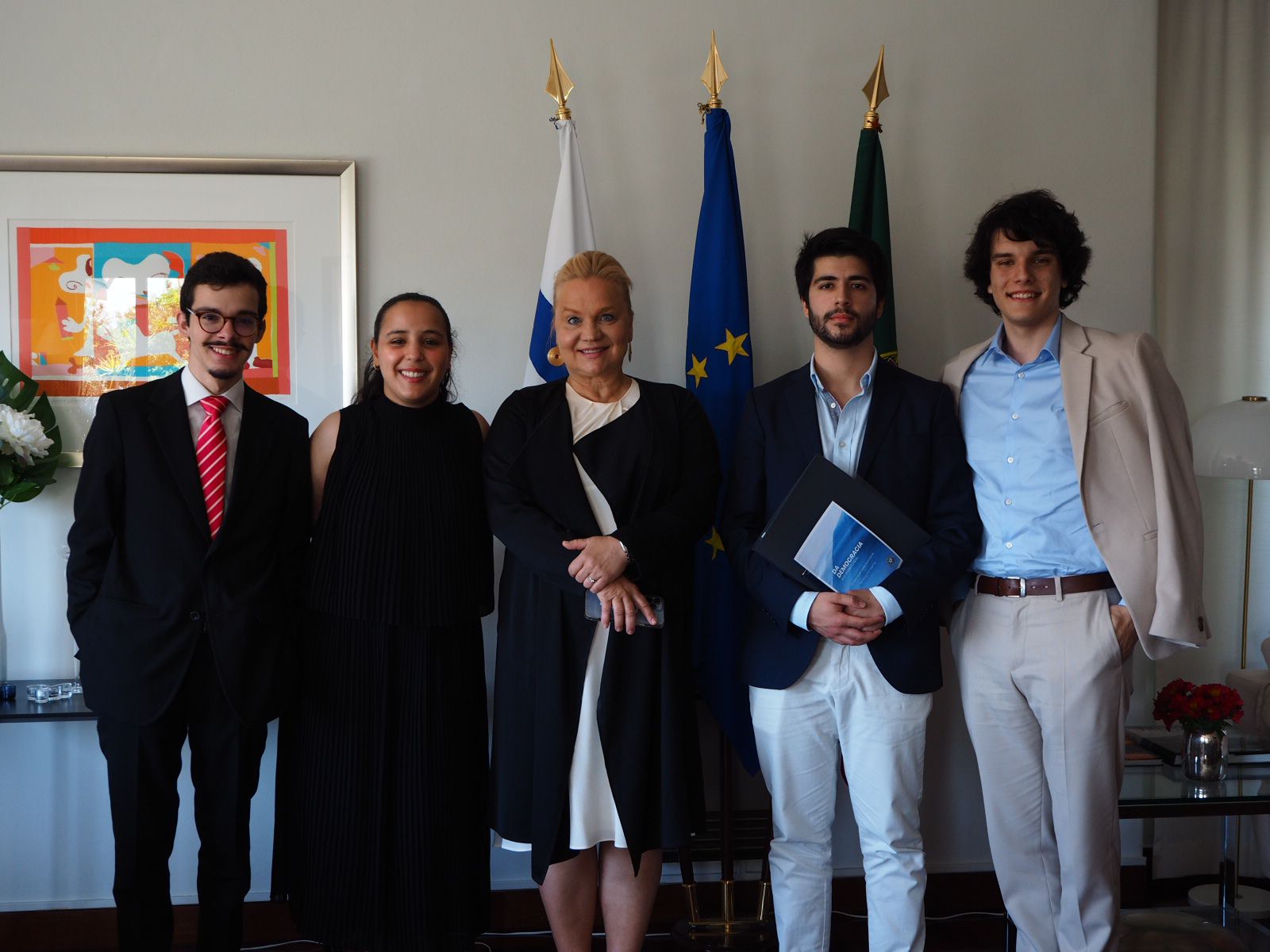
What are the biggest challenges about being a diplomat?
Normally, they are related to your personal life, because when you’re moving from one country to another that has an impact on personal and professional plans. If you have a spouse and/or children, it’s important to find a balance between everyone’s needs and wishes. But there are ways to overcome challenges. These days, foreign services pay increasing attention to creating good conditions for family members. In this field, you won’t see your friends and family in your home country as often either, and it is important to consider ways through which you don’t feel so far away. In my case, when I began my career, my closest family came to visit for long periods of time, and that enabled us to have good quality time together.
Which characteristics are most valued in a diplomatic role, and how can we, as students, better develop them?
I think good communication, both oral and in writing. These are skills that you can cultivate; you don’t need to be born a great speaker or writer, but you can train and grow into these abilities through practice. Another key characteristic is to develop analytical skills, meaning the capability to see the big picture and identify key issues in the vast sea of information around us. In diplomacy, you have to be prepared to do the hard work and learn all the time, so it is crucial to develop a routine for sharpening these skills. It is also important to be able to both see things from another perspective and be willing to understand other points of view. You don’t have to agree, but you must try to find a balance with the other. Soft skills are also important from teamwork to problem solving.
One thing I want to underline is that diplomacy needs all different kinds of people and backgrounds. It needs people who are more the “research type”, who are analytical and want to go deeper into subjects, but also people who, for example, are more operational and want to promote trade. There isn’t only one type of person you must be to go into diplomacy.
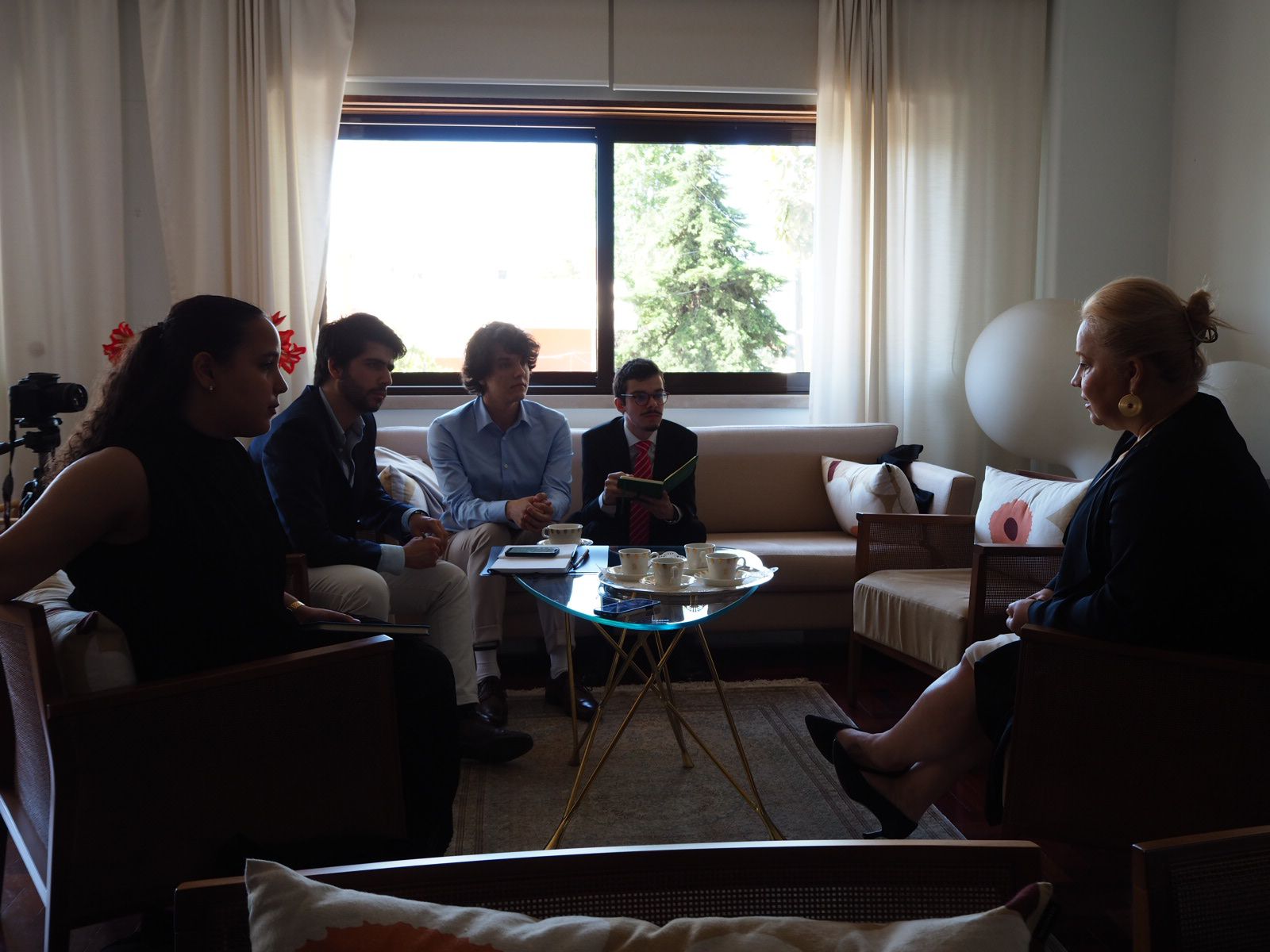
Do you have any advice for those in our course who aren’t sure about the professional path they want to take?
You don’t need to choose the field or career you want to pursue for the rest of your life right now. You can look for your own path, try one area and then change. In order to figure out what’s best for you, you can try different internships and exchange programs. One of the great things about diplomacy is that you get to work and gain experience in so many different fields, and to reinvent yourself every few years. Change is good, I can assure you!
Learn more about the Finnish embassy in Portugal here!
